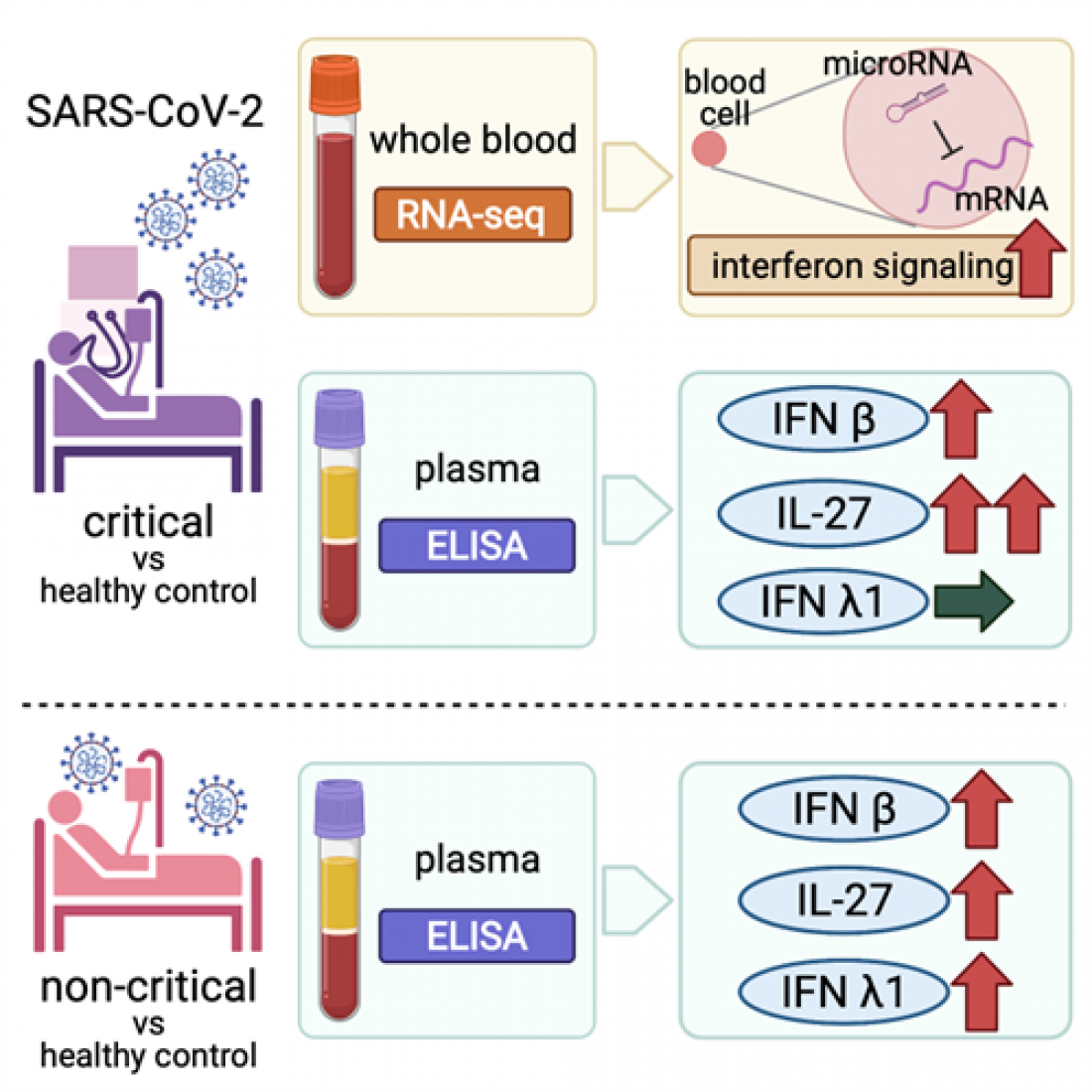Outline of this study
Researchers from Osaka University evaluate RNA profiles in the blood to shed light on the signaling pathways underlying the pathogenesis of COVID-19
Osaka, Japan – Just as a recipe contains the instructions needed to make a dish, messenger ribonucleic acid (mRNA) sequences in the body contain the information needed to make proteins. Changes in the expression of specific mRNAs and short RNA sequences known as microRNAs, which can act to suppress protein synthesis, may accompany disease. Recently, researchers in Japan have uncovered changes in mRNA and microRNA expression patterns that occur in the blood during severe COVID-19 infection.
In a new study published in Molecular Therapy Nucleic Acids, researchers led by Osaka University comprehensively analyzed the mRNA and microRNA profiles of whole blood samples from patients with severe COVID-19 using a technique known as RNA-sequencing. RNA-sequencing allows for the evaluation of all of the RNA content expressed within a population of cells.
As COVID-19 continues to affect the global population, further insight into the mechanisms underlying the pathogenesis of COVID-19, i.e., how COVID-19 progresses in the body, is needed. To this end, the Osaka University-led research team sought to examine RNA expression in the blood of patients with severe COVID-19 to determine how mRNA and microRNA expression profiles are affected by COVID-19.
“We collected whole blood samples from critically ill COVID-19 patients and healthy controls and performed RNA-sequencing to evaluate differences in mRNA and microRNA expression,” says lead author of the study, Yuki Togami.
RNA-sequencing analysis revealed specific mRNAs and microRNAs that were differentially expressed between severely ill patients with COVID-19 and healthy controls. Integrated analysis of mRNA and microRNA expression profiles further showed that an immune response pathway known as the interferon signaling pathway was activated in patients with severe COVID-19.
“On the basis of the results of our analysis, we measured interferon protein levels in patient plasma and found notable differences in the expression of two interferon pathway members, interferon-β and interferon-λ1,” says senior author, Hiroshi Ogura.
Interferon-β was found to be elevated in COVID-19 patients in a manner that corresponded with illness severity, while interferon-λ1 expression was higher in non-critically ill patients compared with healthy controls, but lower in critically ill patients compared with non-critically ill patients. The research team’s findings indicate that interferon-β and interferon-λ1 play an important role in the severity of COVID-19. Enhanced understanding of the cellular mechanisms underlying COVID-19 pathogenesis may aid in the development of therapeutics to treat severe COVID-19.
###
The article, “Significance of interferon signaling based on mRNA-microRNA integration and plasma protein analyses in critically ill COVID-19 patients,” was published in Molecular Therapy Nucleic Acids at DOI: https://doi.org/10.1016/j.omtn.2022.07.005.
About Osaka University
Osaka University was founded in 1931 as one of the seven imperial universities of Japan and is now one of Japan's leading comprehensive universities with a broad disciplinary spectrum. This strength is coupled with a singular drive for innovation that extends throughout the scientific process, from fundamental research to the creation of applied technology with positive economic impacts. Its commitment to innovation has been recognized in Japan and around the world, being named Japan's most innovative university in 2015 (Reuters 2015 Top 100) and one of the most innovative institutions in the world in 2017 (Innovative Universities and the Nature Index Innovation 2017). Now, Osaka University is leveraging its role as a Designated National University Corporation selected by the Ministry of Education, Culture, Sports, Science and Technology to contribute to innovation for human welfare, sustainable development of society, and social transformation.
Website: https://resou.osaka-u.ac.jp/en



